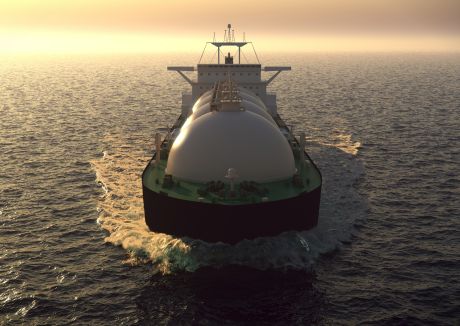US President Joe Biden on Tuesday signed the Inflation Reduction Act (IRA), designed to speed up the energy transition and put the country on the trajectory for significant emission cuts by 2030. The bill will, among other things, offer more generous tax credits to carbon capture technologies, a move that is expected to boost investment in the sector.
The IRA expands tax credits for low carbon technologies such as wind, solar, nuclear power, clean hydrogen, clean fuels and carbon capture. This is subject to businesses paying workers a prevailing wage and offering apprenticeships.
If these conditions are met, the 45Q tax credits for carbon capture and storage (CCS) and carbon capture utilisation and storage (CCUS) projects are much more generous than previously under the 2018 Bipartisan Budget Act.
For direct air capture (DAC) projects, that are not utilising the captured CO2 for enhanced oil and gas recovery (EOR), the tax credits can be up to USD 180/mt compared with USD 50/mt previously. For DAC projects with EOR the tax credits have increased from USD 35/mt previously to USD 130/mt.
The IRA also lowers the thresholds concerning the volume of annual carbon emissions that installations must capture in order to receive tax credits.
For power plants, the IRA lowers the annual threshold from 500,000 mt of captured carbon to 18,750 million tonnes. For DAC projects, the IRA lowers the annual threshold from 100,000 mt to just 1,000 mt.
Law firm Gibson Dunn noted in a recent article that the high thresholds under prior laws were major impediments to the financing of CCUS projects, “so these reduced thresholds are a particularly welcome development for the industry.”
“The IRA potentially fundamentally alters the CCUS landscape in the U.S.,” the Gibson Dunn note said, adding that the legislation “should ensure that CCUS projects will be a significant feature of decarbonization efforts in the U.S.”
Moreover, Calli Obern, Women Leaders in Energy Fellow at the Atlantic Council’s Global Energy Center, said in a recent post that carbon removal will get a big lift under the IRA.
“Carbon removal experts and startups are rushing to prepare for this new wave of funding, which will test if technologies can deliver on their ambitions,” Obern wrote.
Obern said cost and supply issues had hampered carbon removal in the past. “Permanently removing a ton of CO2 from the air today can cost over $500, and there are not enough facilities to meet demand from the voluntary market.”
A number of oil companies including ExxonMobil and Shell have, for example, expressed an interest in large-scale deployment of CCS in the Houston area. The plan is to capture and store around 50 million metric tons of CO2 annually by 2030 and 100 mt by 2040 to address industrial emissions. The support measures under the IRA could help such projects see the light of day.
The US Senate passed the IRA earlier in August with 51 votes against 50 and without a single Republican voting in favour. It was passed by the House of Representatives a few days later. The bill, which builds on the rejected Build Back Better agenda proposed by President Biden more than a year ago, sets out a target to reduce CO2 emission by 40% compared with 2005 levels by 2030 and earmarks USD 369 billion in energy security and climate change programs over the next ten years.
However, the American Petroleum Institute (API) has criticised the bill for hiking taxes and for not addressing oil and gas permitting reforms, although a proposal on the latter is expected before the end of the fiscal year.
“While the Inflation Reduction Act takes important steps toward new oil and gas leasing and investments in carbon capture and storage, it falls well short of addressing America’s long-term energy needs and further discourages needed investment in oil and gas,” API President and CEO Mike Sommers said in a statement on Tuesday.
He said the API shares the goal of addressing climate change but that the “considerable tax increases” were “the wrong policies at the wrong time.”
“From a new corporate minimum tax to an $11.7 billion tax on crude oil and petroleum products to a new natural gas tax, this legislation imposes additional costs on American families and businesses at a time when policymakers should be looking for solutions to provide relief,” Sommers said. - AW
Photo credit: Matt Smith Photographer / Shutterstock
This material was first issued to subscribers of Gas Strategies Information Services (Gas Matters, LNG Business Review and Gas Matters Today). Much more than gas, Information Services covers a broad variety of topics across the global energy transition.
To find out more about how Gas Strategies can support your organisation with any of the points in this blog or regarding any aspect of the energy transition, then get in touch today.








